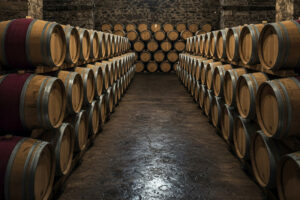A controller genes decides how much wine one will drink, whether just a few drops or a full glass. The controller gene makes the brain sensitive to a hormone the liver secrete during digestion under stress, like after consuming too much alcohol or too many carbs.
This discovery, published in the journal of the Proceedings of the National Academy of Sciences (www.pnas.org), could pave the way to new drugs for treating alcoholism, and by an international group led by King's College London, with the participation of IRCCS Burlo Garofalo and the University of Trieste together with the IRCCS San Raffaele Hospital in Milan and launched by the Italian daily "Corriere della Sera" (www.corriere.it).
The gene linked to alcohol consumption was identified thanks to a study involving more than 100.000 people of European origin. Italy contributed with data on 2.000 inhabitants of the Val Borbera, in the Apennines between Liguria and Piedmont. “Studying these mountain populations”, explained Daniela Toniolo, Head of the genetic Unit of common diseases at San Raffaele, “that have been relatively isolated until recently, is a great help to understand the link between DNA and some specific traits”.
The researchers then analyzed the genomes of these people related to their consumption of alcohol, resulting in a link with a specific variant of a gene, called "Klotho", which is used to produce a receptor for two hormones: FGF19, that the intestine produces through bile action and FGF21, which the liver activates under stress.
“The latter had already been identified, because in humans it is associated with the preference for specific macronutrients, while in mice it suppresses the craving for alcohol and sweets”, Toniolo told "Corriere della Sera”. “There is therefore a liver-brain axis, which we have demonstrated on mice – when the gene for the Klotho receptor in the brain is eliminated, alcohol consumption increases. And this led us to identify a very precise metabolic pathway on which we can act to reduce alcohol consumption”.
Copyright © 2000/2026
Contatti: info@winenews.it
Seguici anche su Twitter: @WineNewsIt
Seguici anche su Facebook: @winenewsit
Questo articolo è tratto dall'archivio di WineNews - Tutti i diritti riservati - Copyright © 2000/2026






































































































































































































